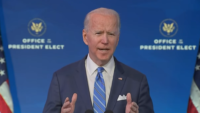Government
Zimbabwe's New Government Promises Infrastructure Investment
Finance minister offers program based on Chinese funding
In early December, the government of Zimbabwe's new President Emmerson Mnangawa unveiled a program to remediate the collapsing economy left behind by deposed strongman Robert Mugabe. Economists estimate the country's infrastructure development is running a deficit of $42 billion.
In his 2018 budget speech on Dec. 7, Finance Minister Patrick Chinamasa, who held the same job under Mugabe, said the new leadership is increasing the national budget's infrastructure spending rate to 15% of the national budget in 2018 from the 11% in 2017. He also said the share will be further increased to 25% by 2020.
In the speech, the minister also announced a $1.7-billion infrastructure development financing program for 2018. The funds include $1 billion from government revenues and $463.8 million in loan financing.
"The financial requirements for infrastructure support to drive Zimbabwe toward the 'New Economic Order' are quite large," he said.
Before Mnangawa took office on Nov. 24, Zimbabwe's development partners had confirmed only $90.5 million to support the country's budget.
"The new government is engaging all development partners for much larger support to complement the internally generated resources during 2018," said Chinamasa. China is Zimbabwe's biggest source of direct foreign investment, with 50% of the $929 million approved by the Zimbabwe Investment Authority in 2015. In early December, the Asian nation announced $213 million in new financing for Zimbabwe's infrastructure development projects. Funding through the China Export-Import Bank will underwrite added capacity at the RG Mugabe International Airport, construction of the new parliament building and development of the second phase of a high-performance computing center.
Airport improvements include expansion of an existing terminal building, runway rehabilitation and a new communication system, as well as new and refurbished fire stations.
Several other Chinese contractors previously have been awarded key Zimbabwe infrastructure projects, with financing from the China Export-Import Bank.
China's Power Construction Corp. is expanding Hwange Thermal Power Station, the biggest in Zimbabwe, with a nameplate capacity of 920 MW. The $1.5-billion expansion contract will add 600 MW to the existing capacity.
Sinohydro Group, another Chinese contractor, is expanding the 750-MW Kariba South power station under a $355-million contract. The project will add 300 MW to the existing hydroelectric power plant.
However, China Africa Sunlight Energy's construction of the 600-MW coal-fired Gwayi power plant has been delayed. The plant was to rely on feedstock from 4 billion tonnes of coal reserves discovered in the Gwayi area.
Chinamasa said the previous government had delayed a number of infrastructure projects, increasing costs and time overruns and abetting the "lowering of quality of completed projects that [led] to additional budget outlays for costly rehabilitation works."
Chinamasa said the government's New Economic Order identifies the infrastructure development challenges the government will address in 2018, including a lack of accountability, disagreement among government officials involved in project implementation and failure to maintain existing infrastructure. He said the government will focus on energy, transportation, housing, water and sanitation.
Six energy generation and transmission projects will be either kick-started or rehabilitated in 2018 at a cost of $584.5 million, according to Chinamasa. The minister has allocated $386.1 million and $74.7 million for transport and water projects, respectively, in the 2018 fiscal year.
Zimbabwe ranked at No. 123 out of 138 countries in the 2016-17 Global Competitiveness report, with a score of 2.5 out of a possible 7. The report identifies "inadequate supply of infrastructure as the fifth most problematic factor in doing business in the country."


